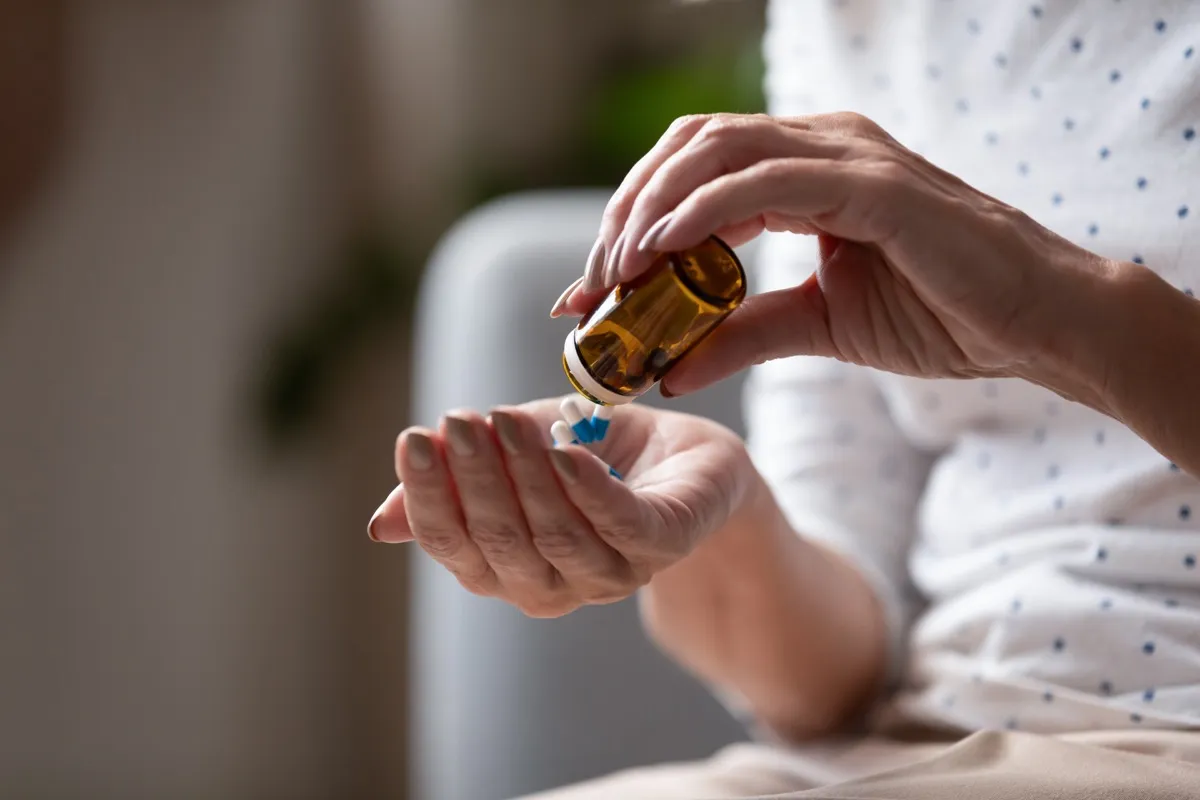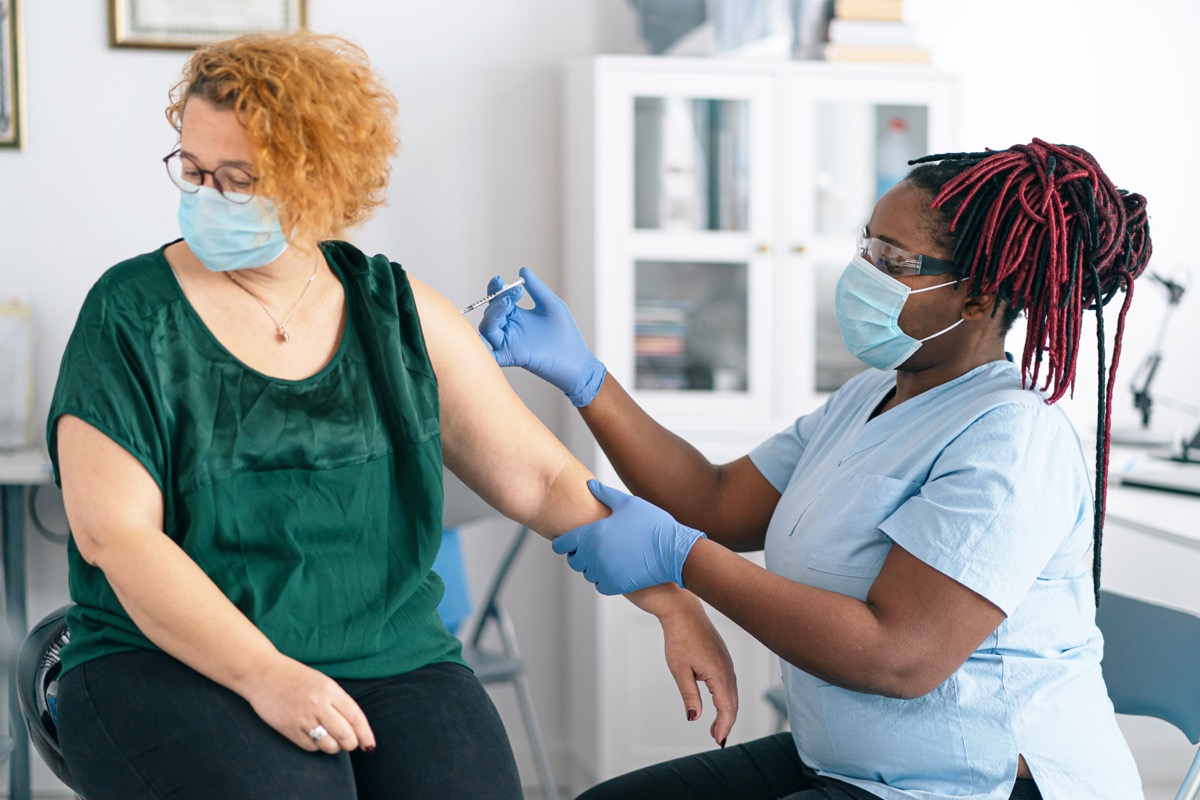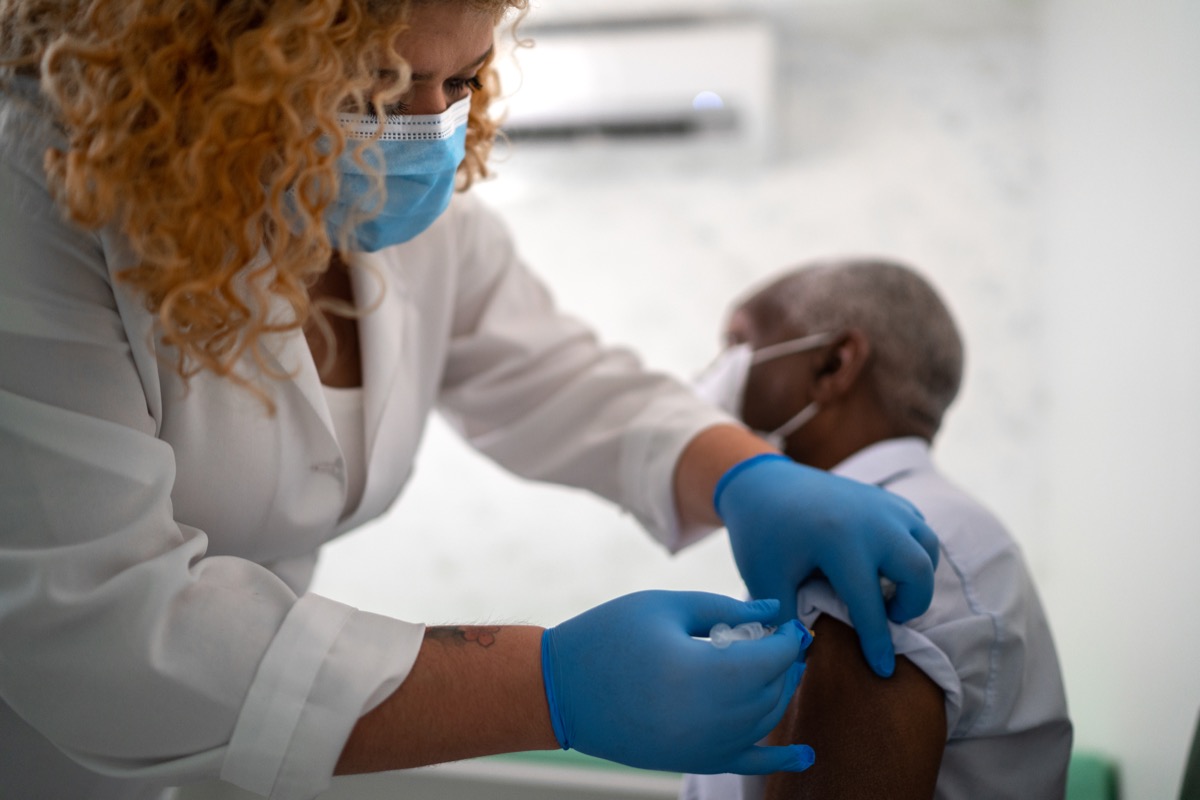While most prescription medications won’t affect the efficacy of the vaccine, studies show that immunosuppressive agents might, so experts suggest waiting to start them if you can. “If you are going to be placed onto a new immunosuppressive agent … we would recommend you wait a couple of weeks after getting the injection before starting that,” pulmonary and critical care physician Vanessa Walker, DO, told NBC affiliate KCRA. “If you are going to be starting a very immune-suppressive regimen, you probably want to let that vaccine work before you get started on those medications.” However, Walker said if your doctor feels that you need to start the medication immediately due to your condition, you should do so. The Centers for Disease Control and Prevention (CDC) also said that “decisions to delay immunosuppressive therapy to complete COVID-19 vaccination should consider the person’s risks related to their underlying condition.” And for more vaccination planning, Make Sure to Do This the Day After Your COVID Vaccine, Experts Say.ae0fcc31ae342fd3a1346ebb1f342fcb Studies have shown that the antibody response in people on immunosuppressive medications isn’t as strong as in people not taking those medications. “It is clear that if you are on immunosuppressant agents, history tells us that you are not going to have as robust a response as if you had an intact immune system that was not being compromised,” White House COVID adviser Anthony Fauci, MD, said in December, per the American Journal of Managed Care. “But some degree of immunity is better than no degree of immunity. So, for me, it would be recommended that these people do get vaccinated.” A pre-print study shared on medRxiv on April 7 found that antibody production following vaccination was lower in people on immunosuppressive medication. Researchers noted that while the antibody response may not be as high as it is for those not on immunosuppressive medications, patients were still able to mount an immune response, which makes vaccination worthwhile. And for more ways to boost your response, You Need This in Your Diet After Your COVID Vaccine, Doctor Warns. The study found that some immunosuppressive medications resulted in notably lower antibody responses. According to the study, glucocorticoids resulted in a 10-fold reduction in antibodies. Glucocorticoids are steroids used to treat various conditions, including multiple sclerosis, rheumatoid arthritis, inflammatory bowel disease, ulcerative colitis, skin conditions, allergies, asthma, heart failure, and certain cancers, according to Healthline. The study also found a 36-fold reduction in antibodies in people on B-cell depleting therapies, such as rituximab, which treats non-Hodgkin’s lymphoma. “This may translate into reduced protection, but to what extent remains unclear,” study author Alfred Kim, MD, assistant professor of medicine, pathology, and immunology, told the Global Health Living Foundation. And for more information on the COVID vaccine delivered straight to your inbox, sign up for our daily newsletter. If you receive immunosuppressive therapies, talk with your doctor about how to best time your COVID vaccination with your therapy sessions. The CDC recommends that “based on general best practices for vaccination of immunocompromised people, ideally, COVID-19 vaccination should be completed at least two weeks before initiation of immunosuppressive therapies.” The agency noted that when it’s not possible to administer a complete COVID vaccine series in advance, it’s still safe for people on immunosuppressive therapy to get vaccinated. And for more medication you may want to avoid, This Common Medication Can Make Your Vaccine Less Effective, Study Says.



